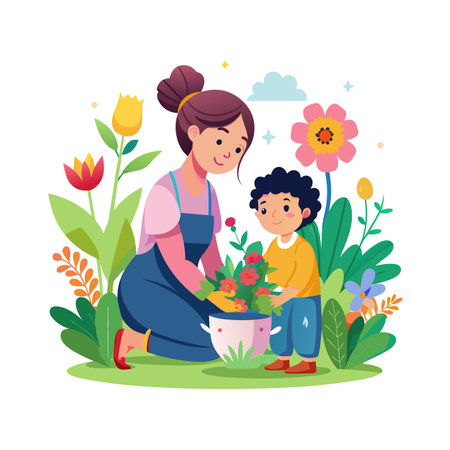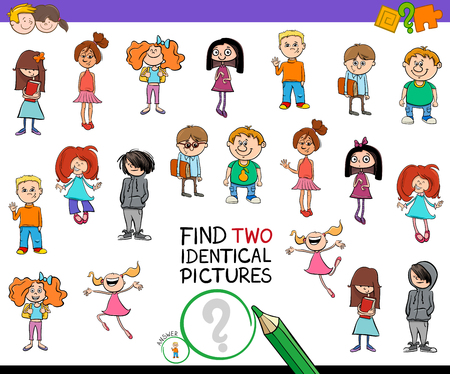Understanding Mixed Heritage in the UK Context
The United Kingdom has long been a mosaic of cultures, languages, and traditions. In recent years, the number of mixed heritage families has grown, creating a new and dynamic landscape for what it means to be British. The experience of raising multicultural children in the UK is shaped not only by family traditions but also by how wider society perceives mixed heritage backgrounds. Historically, British identity was often seen as monolithic; however, today’s Britain embraces a more nuanced and inclusive view that reflects its diverse population.
Societal Perceptions of Mixed Heritage
Attitudes towards mixed heritage families have evolved significantly. While challenges such as stereotyping or questions about belonging still exist, there is increasing recognition and celebration of multiculturalism. Schools, local communities, and media are gradually acknowledging and supporting the unique experiences of children growing up with more than one cultural background.
The Evolving British Identity
Modern British identity is no longer defined solely by ancestry or appearance. Instead, it encompasses shared values such as respect, tolerance, and openness to difference. This shift allows families to celebrate both their British roots and their unique cultural heritages without feeling pressured to choose one over the other.
Key Aspects of Multicultural Family Life in the UK
| Aspect | Description |
|---|---|
| Cultural Traditions | Blending festivals, food, and customs from multiple backgrounds |
| Language | Raising bilingual or multilingual children is increasingly common |
| Community Support | Access to networks and resources for mixed heritage families is growing |
This evolving context provides both opportunities and complexities for parents as they guide their children through a rich tapestry of identities. Understanding this unique landscape is the first step in empowering multicultural children to thrive in today’s UK.
2. Fostering a Positive Sense of Identity
Helping children of mixed heritage in the UK build a healthy and positive sense of identity is essential for their emotional and psychological development. The journey begins at home, where parents can actively nurture an environment that honours and celebrates all aspects of their child’s cultural background. This involves not only recognising the richness of both (or multiple) heritages but also supporting children as they encounter questions about belonging and self-definition.
Encouraging Cultural Exploration
One effective strategy is to create opportunities for children to explore each part of their heritage through language, food, music, festivals, and family traditions. For example, attending Diwali celebrations while also enjoying a traditional British Sunday roast brings together elements from different backgrounds in meaningful ways. Sharing stories from both sides of the family helps children understand their roots and appreciate the diversity within themselves.
Strategies to Support Multicultural Identity
| Strategy | Practical Example (UK Context) |
|---|---|
| Language Exposure | Encourage learning both English and any heritage languages at home or through community classes in London or Manchester. |
| Cultural Events Participation | Attend events like Notting Hill Carnival or Chinese New Year celebrations together as a family. |
| Storytelling & Books | Read diverse children’s books featuring British-Asian, Afro-Caribbean, or other multicultural families. |
| Open Conversations | Create safe spaces for children to express feelings about their identity and discuss experiences with friends at school. |
| Connecting with Community | Join local cultural groups or playgroups that reflect your family’s heritage(s). |
Navigating Questions About Belonging
Children may sometimes face questions like “Where are you really from?” or experience moments when they feel ‘in-between’ cultures. Parents can empower them by modelling confidence in their own multicultural identity and providing language to respond proudly. Encourage responses that affirm their Britishness as well as their other cultural identities – for example: “I’m British and I’m also Nigerian/Indian/Polish.” Reassure them that it’s normal to feel different at times and highlight the strengths of having a rich, blended background.

3. Navigating Family and Community Relationships
Raising multicultural children in the UK often means weaving together diverse family traditions and community influences. Successfully navigating these relationships is essential for fostering a sense of belonging and positive identity in your child.
Tips for Engaging with Both Sides of the Family
| Strategy | Description |
|---|---|
| Regular Visits or Calls | Schedule frequent catch-ups with both sides of the family, even if just over a video call, to maintain strong connections regardless of distance. |
| Cultural Celebrations | Involve your child in festivals and significant days from each heritage, whether it’s Diwali, Chinese New Year, St. David’s Day, or Burns Night. |
| Storytelling Sessions | Encourage grandparents and relatives to share family stories or traditional tales, providing cultural context and personal history. |
| Bilingual Communication | If possible, support language learning at home so your child can communicate with extended family members in their native tongues. |
Building Connections within Local Communities
The UK is home to a rich tapestry of multicultural communities. Getting involved locally can help children see their mixed heritage reflected around them and build lifelong friendships.
- Join local groups: Seek out playgroups, sports clubs, or faith communities that celebrate diversity or represent your cultural backgrounds.
- Participate in community events: Attend multicultural festivals, food fairs, or language classes offered in your town or city—these are great opportunities for exposure and inclusion.
- School engagement: Build relationships with teachers and other parents to ensure your child’s cultural needs and perspectives are understood and valued within the school environment.
Tackling Challenges Related to Cultural Expectations or Misunderstandings
It’s natural for misunderstandings or conflicting expectations to arise. The key is open communication and empathy. Here are some ways to approach potential challenges:
| Challenge | Approach |
|---|---|
| Differing family traditions (e.g., food choices, religious practices) | Have open discussions about preferences and find respectful compromises that allow space for both cultures at home. |
| Stereotyping or bias within the wider community | Equip your child with confidence by celebrating their uniqueness; role-play scenarios together to practise responses to questions or comments. |
| Lack of understanding about British culture from extended family abroad | Share photos, videos, and stories about life in the UK, helping relatives appreciate your experiences and choices. |
| Differing expectations regarding education or social life | Create a family agreement on values, while allowing flexibility for each parent’s perspective to be honoured. |
Nurturing Connection Through Empathy and Curiosity
Above all, encourage your child to ask questions about both sides of their heritage. Modelling curiosity, respect, and openness as parents creates a safe emotional foundation for children to develop their multicultural identity confidently within the UK context.
4. Encouraging Multilingualism and Cultural Traditions
Growing up with a mixed heritage can be a beautiful journey for children in the UK, especially when families consciously nurture both languages and cultural practices at home. Encouraging multilingualism not only strengthens cognitive skills but also fosters a strong sense of identity and belonging. Here are some practical ways to support your child’s language development and keep cultural traditions alive:
Practical Advice for Nurturing Home Languages
- Consistent Language Use: Speak your home languages regularly and naturally during daily routines, such as mealtimes or bedtime stories.
- Resourceful Learning: Incorporate bilingual books, music, and films from local libraries or community centres to make learning fun and engaging.
- Community Involvement: Connect with other families who share your linguistic background through playgroups, after-school clubs, or online communities.
Participating in Festivals and Traditions
- Annual Celebrations: Mark important cultural festivals from each part of your family’s heritage. This could be Diwali, Chinese New Year, Hanukkah, Eid, or Burns Night.
- School Engagement: Collaborate with your child’s school to share cultural practices, perhaps by offering to give a presentation or bring traditional foods for classmates to try.
Integrating Heritage into Everyday Life
| Cultural Aspect | Home Activity Ideas |
|---|---|
| Language | Read bedtime stories in both languages; label household items bilingually |
| Food | Cook family recipes together; visit multicultural markets across the UK |
| Music & Dance | Create playlists from both cultures; join dance workshops or local events |
Offering Authentic Experiences
The UK is wonderfully diverse—take advantage by exploring local museums, exhibitions, or community festivals that reflect your family’s backgrounds. If possible, travel to relatives’ home countries so your child can immerse themselves in their roots. Most importantly, talk openly about your own experiences growing up between cultures—your honest reflections will help your children feel proud and secure in their unique identities.
5. Addressing Challenges and Supporting Emotional Wellbeing
Growing up with a mixed heritage in the UK can be an enriching experience, but it also brings unique emotional and psychological challenges for children. Many multicultural children may encounter situations where they feel ‘in-between’ cultures or face discrimination, both subtle and overt. Understanding these challenges is essential for parents to nurture their childs sense of self-worth and belonging.
Common Challenges Faced by Mixed Heritage Children
| Challenge | Description |
|---|---|
| Identity Confusion | Feeling unsure about which culture they belong to, or struggling to define themselves within a single identity. |
| Discrimination & Prejudice | Experiencing racism, stereotyping, or microaggressions at school or in the wider community. |
| Social Exclusion | Feeling isolated or left out from peer groups who identify more strongly with one cultural background. |
Supporting Your Child’s Emotional Wellbeing
Acknowledging your child’s feelings is the first step towards building resilience. Open parent-child communication is crucial—encourage your child to share their experiences and listen without judgement. Create a safe space at home where all aspects of their heritage are celebrated and valued.
Practical Tips for Parents
- Use reflective listening: Paraphrase what your child shares to show you understand.
- Validate emotions: Acknowledge that feeling confused or hurt is normal and acceptable.
- Empower with language: Teach positive ways to talk about their background and respond to questions or prejudice.
- Connect with diverse communities: Join multicultural groups or events to foster a broader sense of belonging.
The Role of Schools and Community
It can also be helpful to engage teachers and local organisations in supporting your child. Many UK schools offer pastoral care services; don’t hesitate to seek help if you notice signs of distress. Remember, fostering resilience doesn’t mean shielding children from every difficulty, but rather equipping them with tools—like self-advocacy, empathy, and pride in their heritage—to navigate life’s complexities confidently.
6. Accessing Resources and Building Support Networks
Raising multicultural children in the UK comes with unique joys and challenges, but you don’t have to navigate this journey alone. Across the country, there are a wealth of resources, community groups, and educational tools specifically designed to support families embracing mixed heritage identities. Proactively seeking out these networks can provide both practical guidance and emotional reassurance for you and your child.
Local Resources and Community Groups
Connecting with local organisations helps foster a sense of belonging for your family. Many UK cities offer support groups for parents of mixed heritage children, language classes, cultural festivals, and mentoring schemes. These connections not only celebrate diversity but also provide safe spaces for children to explore their identities and share experiences with peers who understand their backgrounds.
| Type of Resource | Example | Location/Access |
|---|---|---|
| Parent Support Groups | Mixed Heritage Families UK | Nationwide (online & in-person) |
| Cultural Centres | Africa Centre London, Irish Cultural Centre | London & major cities |
| Educational Workshops | The Runnymede Trust Workshops | Various locations/online |
| Online Forums | Mumsnet Multicultural Parenting Board | Online access UK-wide |
| Heritage Festivals | Bristol International Balloon Fiesta (multicultural focus) | Bristol & regional events |
School-Based Support
Your child’s school is an essential partner in their multicultural development. Many schools in the UK now offer dedicated pastoral support for pupils from diverse backgrounds, including EAL (English as an Additional Language) services, cultural celebration days, and anti-bullying initiatives that address racial identity. Open communication with teachers about your child’s heritage can encourage more inclusive classroom practices.
Recommended Educational Tools:
- Diverse children’s books reflecting multiple cultures (e.g., “Look Up!” by Nathan Bryon)
- PBS LearningMedia UK: multicultural lesson plans and videos
- The Anna Freud Centre: wellbeing resources for children navigating identity issues
- Twinkl: worksheets and activities on British values and global citizenship
Nurturing Community Connections
Establishing a strong support network—both online and offline—helps normalise your child’s experiences and fosters resilience. Encourage participation in local holiday celebrations from all parts of your child’s heritage, attend storytelling sessions at libraries, or join parenting workshops focused on raising mixed heritage children. The key is to model curiosity and openness, showing your child that their unique background is something to be cherished within the wider British tapestry.


